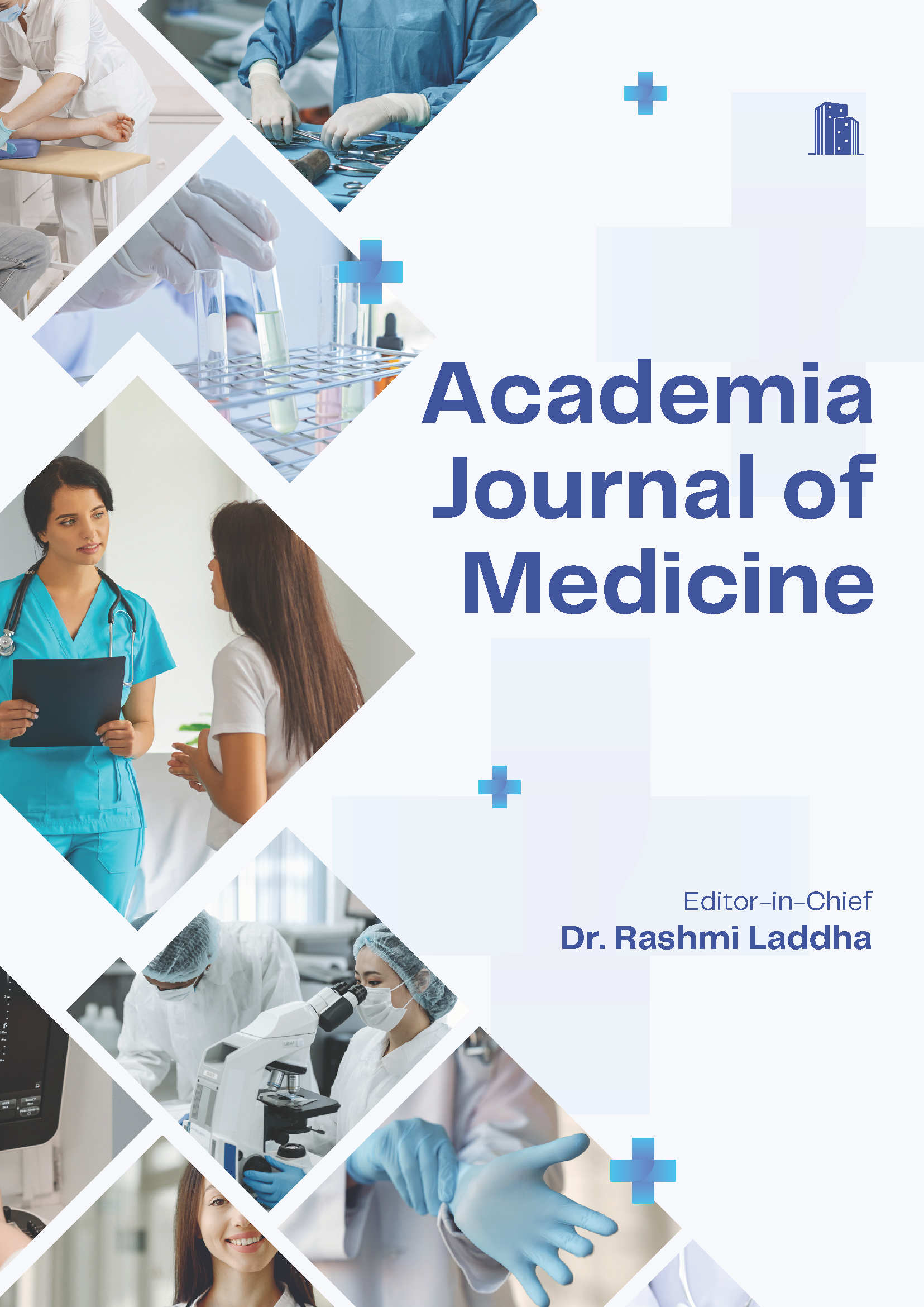Assessment of Association between Thyroid Disorders and Gout
Keywords:
Thyroid, GoutAbstract
Background: Thyroid hormones (THs) play their parts in multiple events, including development, growth, metabolism, and reproduction. Recently, attentions have been paid to THs again due to the increasing prevalence of metabolic diseases, because THs boost the body energy metabolism. Hence; the present study was conducted for assessing association between thyroid disorders and gout. Subjects and Methods: A total of 50 subjects were enrolled. Complete demographic details of all the subjects were obtained. Out of 50 subjects, 25 subjects were of subclinical hypothyroidism while the remaining 25 subjects were healthy control. Complete demographic details of all the subjects were obtained. The thyroid-stimulating hormone (TSH) test was conducted in all the patients. Triiodothyronine (T3) and thyroxine (T4) hormonal tests were also carried out. The diagnosis of subclinical hypothyroidism was performed by the physician by interpreting the results of tests based on increased TSH levels based on the age and normal range of T3 and T4. Serum uric acid levels were obtained from all the patients and the results were subjected to statistical analysis. All the results were obtained and analysed by SPSS software. Results: Mean TSH levels of the subjects of the study group and control group was 9.2 mIU/L and 4.5 mIU/L. Significant results were obtained while comparing the mean TSH levels among the subjects of the study groups. However; non-significant results were obtained while comparing the mean uric acid levels among the patients of the study group and control group. Conclusion: From the above results, authors conclude that no significant correlation exist between thyroid disorders and gout.
Downloads
References
1. Damiano F, Rochira A, Gnoni A, Siculella L. Action of thyroid hormones, T3 and T2, on hepatic fatty acids: differences in metabolic effects and molecular mechanisms. Int J Mol Sci. 2017;18(4):744. Available from: https://dx.doi.org/10.3390/ ijms18040744.
2. Hollowell JG, Staehling NW, Flanders WD, Hannon WH, Gunter EW, Spencer CA, et al. Serum TSH, T(4), and thyroid antibodies in the United States population (1988 to 1994): National Health and Nutrition Examination Survey (NHANES III). J Clin Endocrinol Metab. 2002;87(2):489–499. Available from: https://doi.org/10.1210/jcem.87.2.8182.
3. Kuo C, Grainge MJ, Mallen C, Zhang W, Doherty M. Rising burden of gout in the UK but continuing suboptimal management: a nationwide population study. Ann Rheum Dis.
2015;74(4):661–667. Available from: https://doi.org/10.1136/ annrheumdis-2013-204463.
4. Meier CR, Jick H. Omeprazole, other antiulcer drugs and newly diagnosed gout. Br J Clin Pharmacol. 1997;44(2):175– 178. Available from: https://doi.org/10.1046/j.1365-2125. 1997.00647.x.
5. Levey AS, Coresh J, Balk E, Kausz AT, Levin A, Steffes MW, et al. National Kidney Foundation practice guide lines for chronic kidney disease: evaluation, classification, and stratification. Am J Kidney Dis. 2003;139(2):137– 147. Available from: https://doi.org/10.7326/0003-4819-139- 2-200307150-00013.
6. Levey AS, Stevens LA, Schmid CH, Zhang YL, Castro AF, Feldman HI, et al. A new equation to estimate glomerular filtration rate. Ann Intern Med. 2009;150(9):604–612.
7. Choi HK, Atkinson K, Karlson EW, Curhan G. Obesity, weight change, hypertension, diuretic use, and risk of gout in men: the Health Professionals Follow-up Study. Arch Intern Med. 2005;165(7):742–748. Available from: https://doi.org/10. 1001/archinte.165.7.742.
8. So A, Thorens B. Uric acid transport and disease. J Clin Invest. 2010;120(6):1791–1799. Available from: https://doi. org/10.1172/jci42344.
9. Cirillo P, Sato W, Reungjui S, Heinig M, Gersch M, Sautin Y, et al. Uric acid, the metabolic syndrome, and renal disease. J Am Soc Nephrol. 2006;17(12):165–168. Available from: https://doi.org/10.1681/asn.2006080909.
10. Alonso A, Rodriquez LA, Logroscino G, Hernan MA. Gout and risk of Parkinson disease: a prospective study. Neurology. 2007;69(17):1696–1700. Available from: https://doi.org/10. 1212/01.wnl.0000279518.10072.df.
11. Bruderer SG, Meier CR, Jick SS, Bodmer M. The association between thyroid disorders and incident gout: population-based case-control study. Clin Epidemiol. 2017;9:205–215. Available from: https://doi.org/10.2147/clep.s128627.
12. Desideri G, Bocale R, D’Amore AM, Carnassale G, Necozione S, Barini A, et al. Thyroid hormones modulate uric acid metabolism in patients with recent onset subclinical hypothyroidism by improving insulin sensitivity. Intern Emerg Med. 2020;15(1):67–71. Available from: https://doi.org/10.
